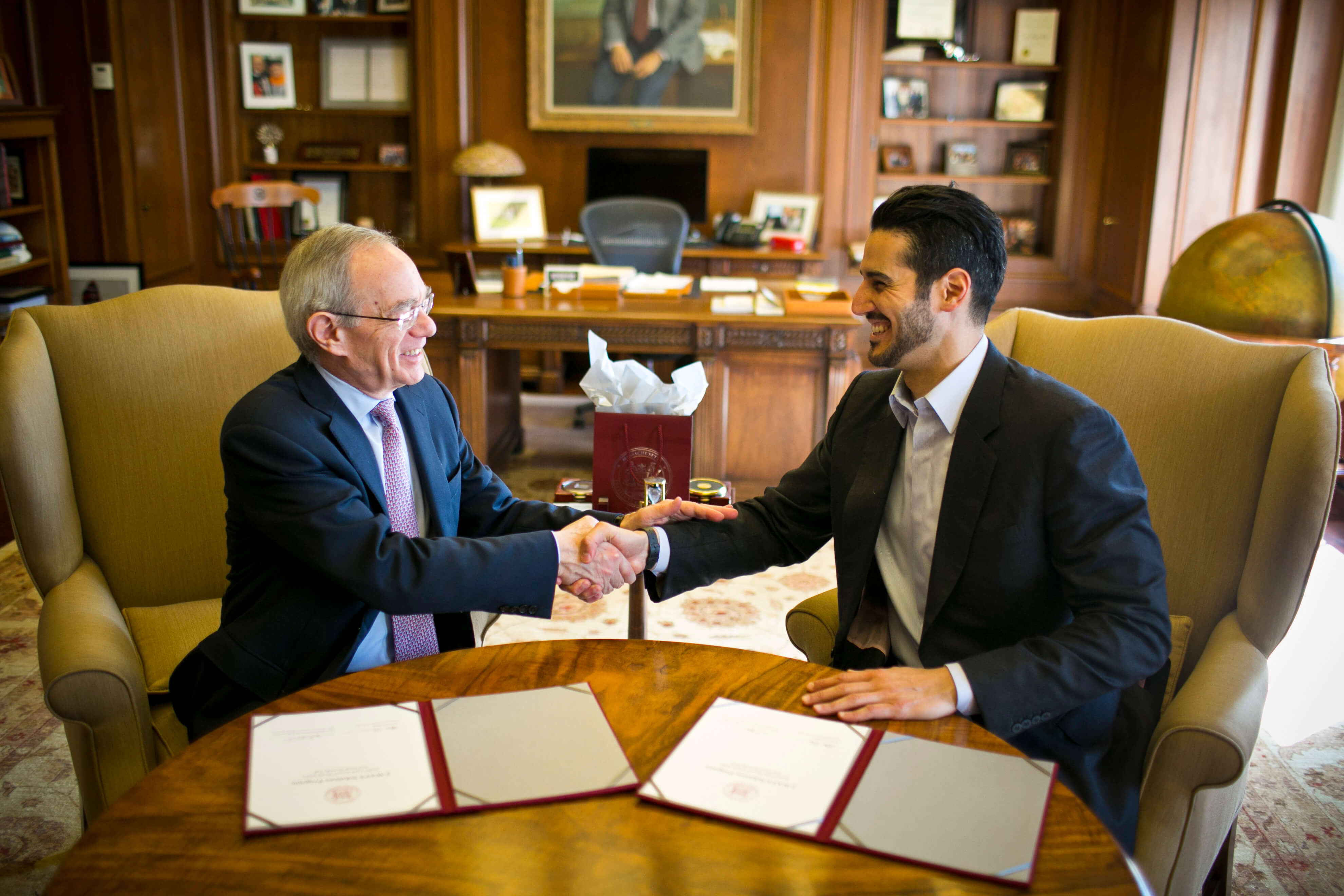New program aims to commercialize innovations in food and water supply

A new program, being launched by MIT’s Abdul Latif Jameel World Water and Food Security Lab (J-WAFS), has been established that will provide initial start up funding to identify technologies intended to improve food supplies, or meet needs for clean water, and move those technologies into commercialization. The new program, called “J-WAFS Solutions,” is expected to provide funding for about 15 projects over the next five years. J-WAFS was originally established in 2014 to spearhead research that will help humankind adapt its water and food supplies to a rapidly rising population and to the pressures of climate change, urbanization, and development.
The J-WAFS Solutions program builds on the successful model of MIT’s Deshpande Center for Technological Innovation, providing funding for research conducted by MIT students, postdocs, and faculty. The funds are intended to advance these technologies to the point where they are positioned to attract venture funding and establish themselves as new companies.
The program is being sponsored by Abdul Latif Jameel Community Initiatives (ALJCI) via a significant grant over a duration of five years. J-WAFS itself was established last year through a gift from alumnus Mohammed Abdul Latif Jameel ’78. The agreement for J-WAFS Solutions was formally signed on April 23 by his son Hassan Jameel, and MIT President L. Rafael Reif.
Mohammed Jameel, Chairman and President of Abdul Latif Jameel Community Initiatives (ALJCI) commented: “ALJCI is excited to catalyze the efforts of the J-WAFS lab at MIT via this five year grant. I firmly believe that a well governed strategic alliance between research and business can provide the powerful combination necessary to deliver practicable humanitarian solutions able to progress to commercial viability.”
“With his initial gift to launch J-WAFS, Mohammed Jameel created a world center for advanced research into water and food security,” Reif says. “With his new support for J-WAFS, through the addition of the Solutions program, he vastly amplifies the value of that research by enhancing our ability to turn discoveries into market-based solutions that make a positive and necessary difference. We are grateful for his generosity, for his trust and confidence in MIT, and for the enormous privilege of working with him to serve humanity.”
J-WAFS director John H. Lienhard V, the Abdul Latif Jameel World Water and Food Security Professor, says the new program is motivated by the belief that business innovation can have a powerful positive effect on human welfare.
“In my conversations with Mohammed Jameel, he has noted the self-propagating and sustained impact that a successful business idea can have in improving the lives of people,” Lienhard says. J-WAFS Solutions’ reach, he adds, may potentially be vastly greater than the initial seed funds involved.
J-WAFS Solutions, which will be part of J-WAFS and will be operated in collaboration with the Deshpande Center, includes a grant program and a suite of support activities to facilitate the commercialization of MIT technologies. J-WAFS will provide expertise in water and food research and applications, and Deshpande will manage the selected grants and the commercialization-support activities. A governance committee consisting of one representative each of J-WAFS, Deshpande, and ALJCI will be responsible for the program’s strategic direction, including the awarding of grants.
Grant proposals will be evaluated and selected annually, in parallel with the existing selection process of the Deshpande Center. As with other Deshpande Center projects, education and training will be provided to grantees.
Based on the experience of the Deshpande Center, it is anticipated that a subset of the funded projects will ultimately result in the creation of a commercial venture. These companies are expected to produce products and services that will have a significant impact on water and food supplies, with related economic and societal benefits. Along the way, the MIT students, postdocs, and staff involved in the projects will gain valuable skills in turning laboratory innovations into commercial products.
J-WAFS, formally launched last fall, aims to spearhead research that will help humanity adapt to a surging population and respond to water and food scarcity worldwide. J-WAFS also serves to elevate MIT’s commitment to addressing the pressures of development, urbanization, and climate variability — all of which endanger food and water systems in both developing and developed countries.
The Deshpande Center for Technological Innovation, which will work in partnership with J-WAFS Solutions, was established in 2002 through a gift from Gururaj “Desh” Deshpande, the co-founder and chairman of Sycamore Networks Inc., and his wife Jaishree. The center awards research grants and provides other types of assistance to MIT faculty members whose work shows the potential to benefit society, transform markets and industries, and improve the quality of life for people across the globe.
To view the original release from MIT, please click here.



 Added to press kit
Added to press kit



